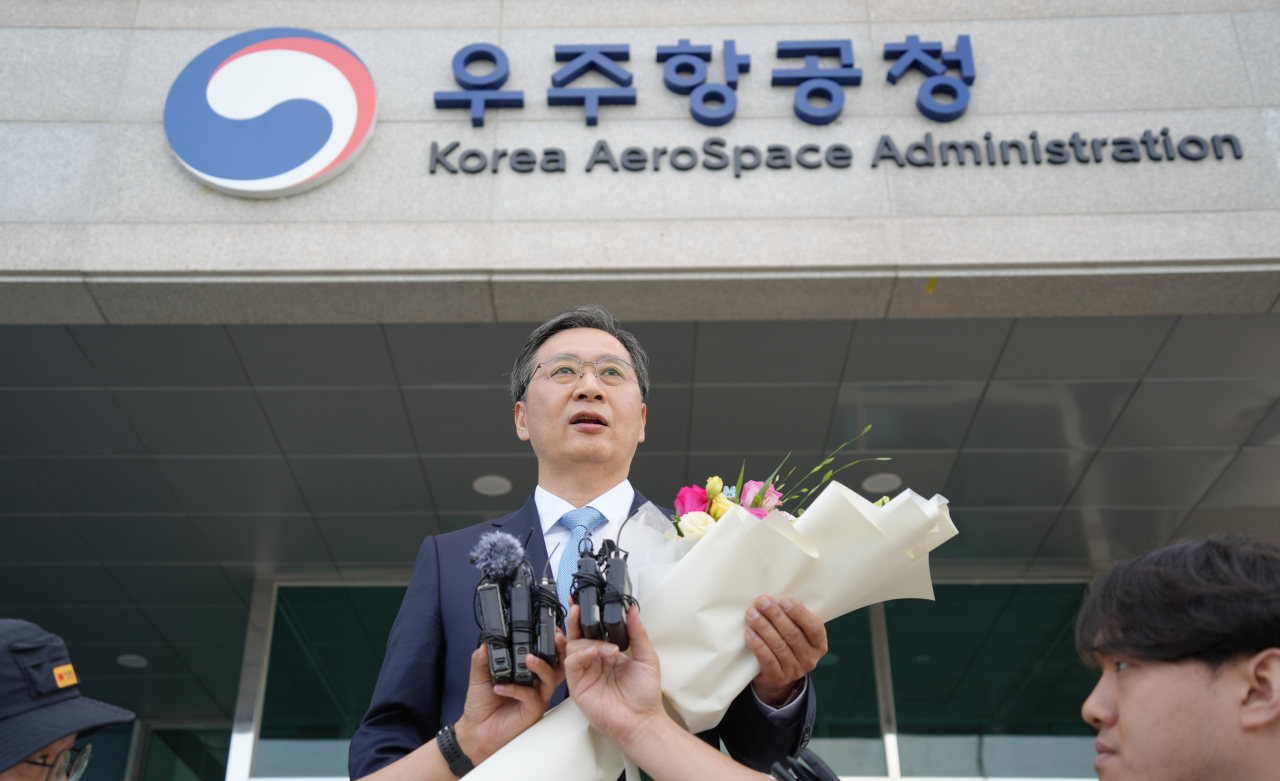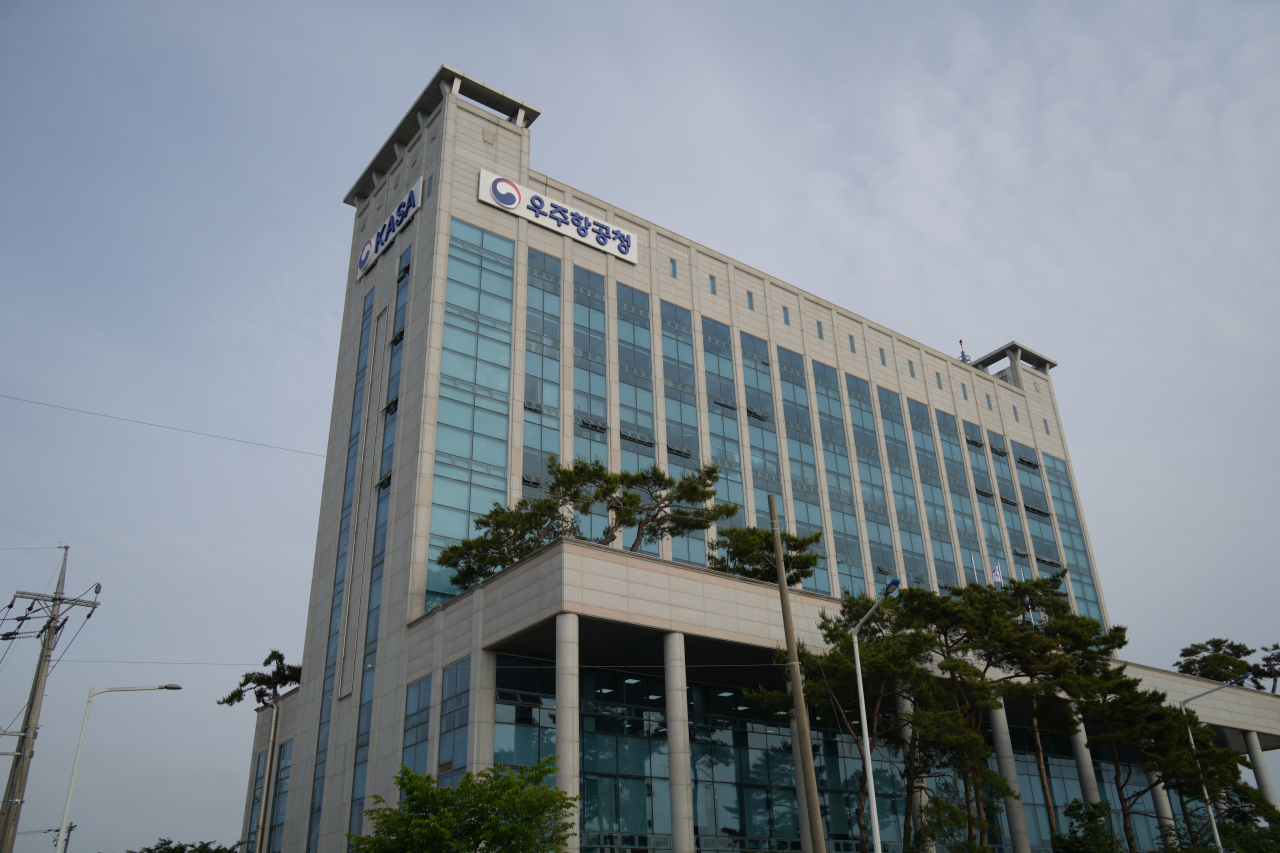Korea ushers in new space era with KASA launch
Korea AeroSpace Administration to focus on talent, R&D, industry and international cooperation, its chief says
By Kan Hyeong-wooPublished : May 27, 2024 - 15:26

South Korea officially opened its first independent space-dedicated body, the Korea AeroSpace Administration, on Monday.
“The role of KASA can be divided into four main sectors: establishing national aerospace policies, fostering talents while conducting R&D, promoting industry and international cooperation,” said Yoon Young-bin, chief of KASA and former aerospace engineering professor at Seoul National University, as he addressed his fellow officials in Sacheon, South Gyeongsang Province.
As the Korean government has continuously emphasized the importance of expanding the space industry, the KASA chief again highlighted the need to prioritize support for the private sector so that companies can advance and lead commercial space businesses.
“The establishment of KASA will be an important stepping stone that guides the way for Korea to become a powerhouse in space economy by setting up the private-led space ecosystem,” he said.
The KASA has not laid out its detailed plans for projects or roadmaps for developing space technologies as the new space body had just taken off. It is expected to announce specific goals and visions later on.
“Although we say that our country has entered the list of top seven countries in the space sector worldwide, the cold reality is that there is a large gap (between Korea and) the top six countries,” said the KASA chief, referring to the successful launch of the Nuri rocket in May last year that made Korea the seventh country in the world with the capabilities to put a homegrown satellite weighing a metric ton into orbit on a homemade launch vehicle.
“In order to become a true space powerhouse, we need active cooperation and efforts from the public, private, academic and research sectors. Moreover, we must present clear mid- to long-term goals and visions in space development and secure a big enough budget to back them up and conduct drastic investments in strategic areas.”

With the maximum quota of KASA employees set at 293, the new space body began operation with about 110 people, including public officials who transferred from the Science Ministry and elsewhere. The Ministry of Science and ICT reorganized its institutional chart as the space bureaus have been switched to handle policies regarding public integration technology and future energy technology.
KASA will continue its talent search, including from overseas, as it looks to fill up the rest of its positions by the end of this year.
“What KASA has to do from now will be a series of challenges and accomplishments,” said the KASA chief.
The launch of KASA came a little over a year after the government initiated the legislation process when the Ministry of Science and ICT submitted special acts for the establishment and operation of the new space body in April last year.
The government’s aim was to pass the act as early as possible to establish KASA before the end of last year but political tussles at the National Assembly between the ruling People Power Party and the main opposition Democratic Party dragged out the process.
KASA's establishment was one of President Yoon Suk Yeol’s campaign pledges. In November 2022, Yoon laid out ambitious goals of reaching the moon and landing on the lunar surface in 2032 and planting the Korean national flag on Mars in 2045 when the country commemorates the 100th anniversary of its liberation day.
The president reiterated the government’s commitment to the space sector, pledging to bring out investments of 100 trillion won ($73.2 billion) by 2045 as he attended the launch ceremony of the Korean space industry cluster in Sacheon in March this year. He vowed to cultivate 1,000 space companies and turn 10 of them into global top-tier space firms, also pledging to increase Korea’s share of the worldwide space market to 10 percent by 2045 from the current 1 percent and create over 100,000 jobs.



















![[Today’s K-pop] Treasure to publish magazine for debut anniversary](http://res.heraldm.com/phpwas/restmb_idxmake.php?idx=642&simg=/content/image/2024/07/26/20240726050551_0.jpg&u=)